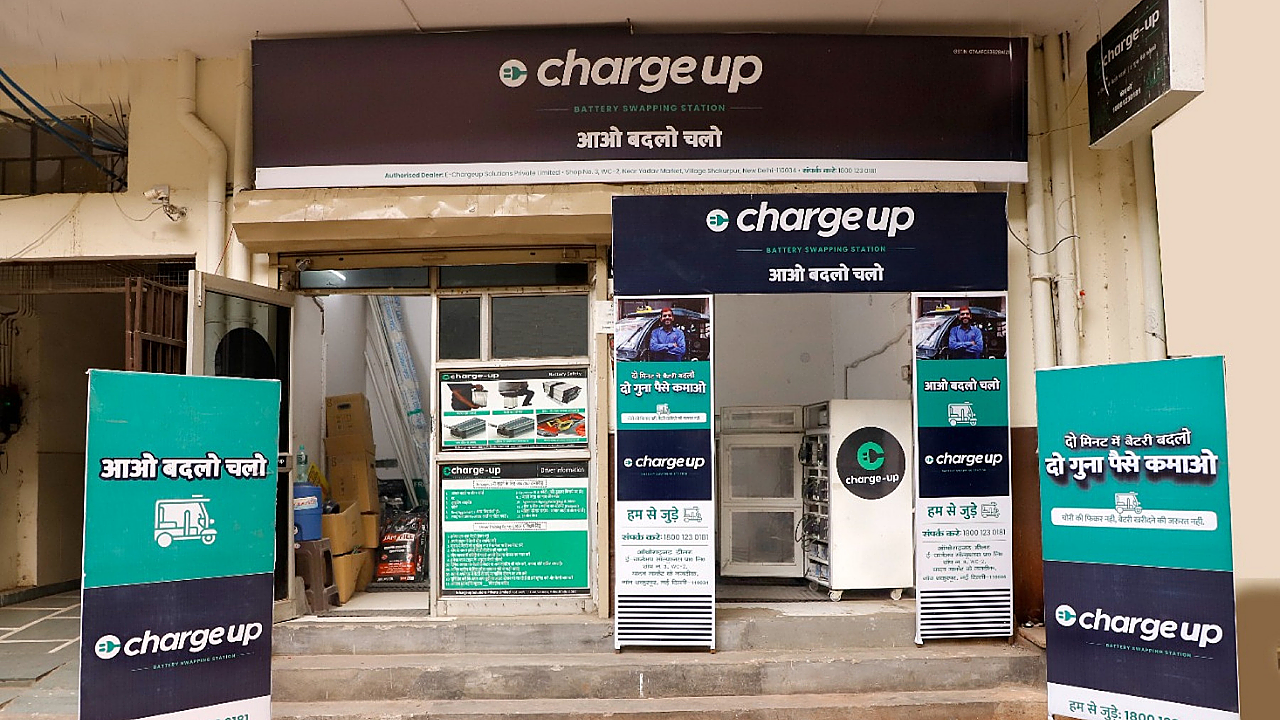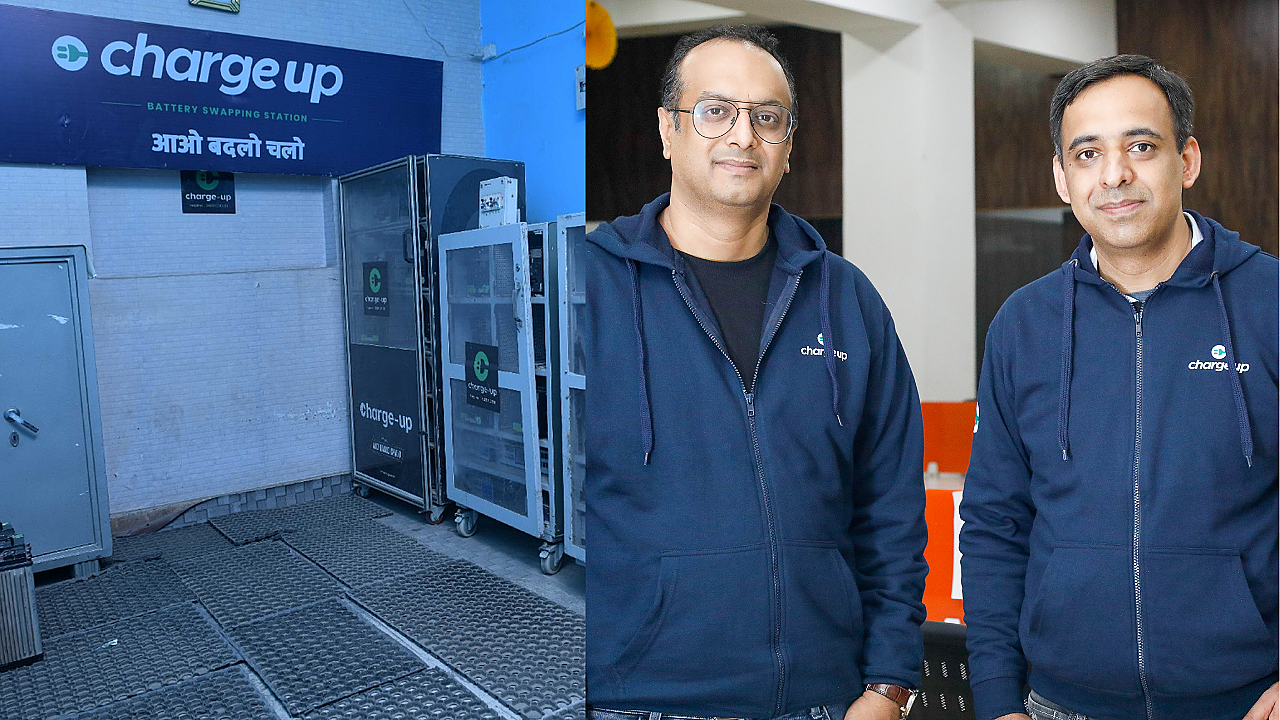
The yet-to-be-announced electric vehicle (EV) battery swap policy has drawn mixed reactions ever since India’s Minister for Road Transport & Highways, Nitin Gadkari, had said that the lawmakers were working on one. There have been start-ups and established organisations who have come out in the favour, and vice versa.
Yet, none of these established players or the EV start-ups seemed to have considered the upcoming policy from a commercial EV fleet owner’s side of the business. Charge-up, a Delhi-headquartered EV charging focused start-up, is doing just that. This start-up is busy setting up EV battery swap stations and tying up with commercial EV fleet owners, and it claims to have a network of more than 120 EV battery swap stations set up already in Delhi-NCR.
“We were exploring data and we figured that the number of E-rickshaws in India is far bigger than the total number of EVs in China. The industry is still facing a lot of trouble because of the infrastructure. These were the points that compelled us to start solving the big problem,” explained Varun Goenka, CEO & Co-founder of Charge-up.
Out-of-the-box Business Model
Founded by Varun Goenka and Ankur Madan, Chargeup has so far raised $2.5 million in pre-series A round led by Capital A and Anicut Capital. Boat’s Aman Gupta and Sameer Mehta, Bollywood’s Tiger Shroff and Shraddha Kapoor also participated in the round. The start-up’s early success, as Goenka pointed out, lies in its business model.

“Out of the 120 EV battery swap stations that are on the Charge-up network, we only own one and the rest have been set up by us for different individuals. Our focus is on the commercial fleet owners, and those who deploy a lot of EVs for commercial operations and need reliable swap stations to keep their fleets running,” said Goenka.
Apart from focusing on electric three-wheelers, the start-up also counts commercial electric two-wheeler owners as their clients. Also, it is open to allow standalone electric two-wheeler owners to swap batteries using Charge-up stations; therefore, battery-as-a-service (BaaS) is the company’s key product. However, he said that the cycle of identifying where to place swap stations and then reaching out to individuals for the same is all calculated and rewarding.
“We charge INR 80,000 for setting up a EV battery swap station at a place. We already have around 120 swap stations added to our network and we are adding more with each passing day,” noted Goenka.
The company charges INR 150 for every battery swap on its network. This amount is then shared between the start-up and the dealer who owns that battery swap station. The average number of kms an e-rickshaw driver on Charge-up’s network covers today is close to 140 km. The company has 2,400 batteries deployed at different locations and claims to be doing 1,500 battery swaps every day.
“All our batteries are equipped with an IoT device and the km travelled are also recorded in the dealer app,” said Goenka.
Negligible Investment
Charge-up, though it charges INR 80,000 for setting up a battery swap station from a dealer, does not invest in buying batteries. Instead, it leases batteries from battery manufacturers based in India. This is because batteries are the most expensive constituent of an EV, and buying the 2,400 batteries that the start-up has deployed would have cost a bomb if it had not chosen the leasing model.
“A dealer setting up a battery swap station is usually able to recover his investment within six to eight months of the swap station going operational. This cost also includes the cost of human support deployed at a battery swap station,” pointed out Goenka.
The founders have also mandated a process to insure every battery they lease to ensure that the costs are covered in case of thefts or any damage. Goenka believes that both battery swapping and charging models are going to co-exist.
“Keeping the recent EV fire incidents in mind, battery swapping will definitely come as a saviour. This is because the same allows users access to batteries that have been charged under a controlled environment,” said Goenka.
Funds, More Collaborations
Chargeup is now concentrating on collaborating with the likes of Amazon, Dominos, Flipkart and more players for expanding business. The founders are also trying to raise more funds for executing expansion plans. It is worth mentioning that the co-founders had put INR 40 lakh three years ago to fund the initial phase of Charge-up.
“Currently, our presence is in Delhi-NCR. We are soon going to start partnerships with fleet owners and e-commerce players. The announcements will be made within two months from now,” noted Goenka.
The company doesn’t shy away from saying that it is EBITDA negative at the moment but is hopeful of entering the positive phase within three to five years from now.
“The first two-and-a-half years were spent on developing the business models we wanted to work on. We did a lot of experiments and started expansion last year. We were only able to add 15 stations in the first six months, and now we have 120 stations,” said Goenka.